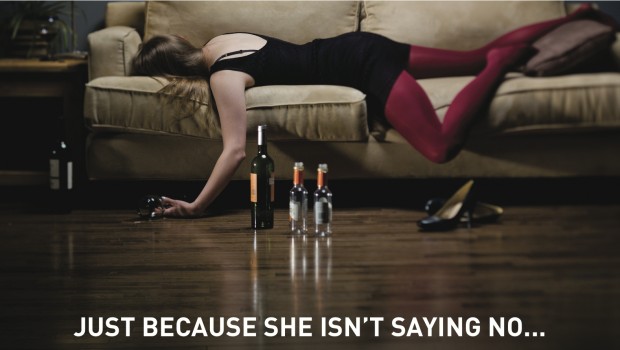Catherine Healy
News Editor
Almost one-fifth of female students in Ireland have been subjected to unwanted sexual contact, according to a new study launched today by the Union of Students in Ireland (USI) and the National Office for the Prevention of Domestic, Sexual and Gender-based Violence (Cosc) in Trinity College’s Long Room Hub.
The “Say Something” survey is the first study of third-level students’ experiences of harassment, stalking and sexual assault to take place on a national level in Ireland. It was carried out in the form of an online questionnaire from January 10 to February 15 of this year, and drew responses from 2,752 students.
The survey’s findings indicate that the vast majority of students who encountered unwanted sexual experiences – just over 97 per cent of victims – did not report these incidents. Nearly 1 in 3 victims said that they did not report cases of unwanted sexual contact because they felt “ashamed and embarrassed”, while 57 per cent believed the incident was not serious enough to report.
The majority of victims, 15 per cent of students, reported that they had experienced unwanted sexual contact in their current educational institutions. In over 60 per cent of cases, victims estimated that the perpetrator was under the influence of alcohol, and the largest proportion of victims identified the perpetrators as being “acquaintances”.
Of the 15 per cent of students who have been subject to physical mistreatment, 75 per cent of respondents described the person involved as not being known to them.
The study also highlighted that lesbian, gay, bisexual and transgender (LGBT) students were more likely to be victims of unwanted sexual contact. 1 in 4 LGBT respondents reported experiencing such behaviour, in comparison to 16 per cent of non-LGBT students. A further 22 per cent of Irish LGBT students have experienced non-sexual violence.
Speaking at the launch, Ellen O’Malley-Dunlop, CEO of the Dublin Rape Crisis Centre (DRCC), said that the report’s findings “validates and vindicates the experiences we hear about in therapy rooms across the country.” She drew comparisons between the study and her organisation’s SAVI report, published in 2002, which found that 1 in 5 Irish women experienced sexual assault in their adult lives, stating that, “It has taken us a long time to accept the prevalence of sexual violence in Ireland.”
Senator Ivana Bacik, who served as President of Trinity College Students’ Union (TCDSU) in the late 1980s, said that the survey’s findings were “depressing, but predicable”. Commenting on the rise of online sexual harassment, she added, “In my day, this abuse was carried out in the Piranha, but the substance was still the same.” The report, she said, was “timely”, given the launch this week by Women’s Aid of the “Don’t Be Afraid” campaign, which encourages women to speak up about their experiences of domestic violence.
USI Vice President for Equality and Citizenship, Laura Harmon, called for further research into students’ experiences of harassment and sexual assault, and stated that the union will conduct comprehensive training for college and SU staff to ensure they are equipped to help students in difficulty.
Dublin Rape Crisis Centre – 1800 777 788






